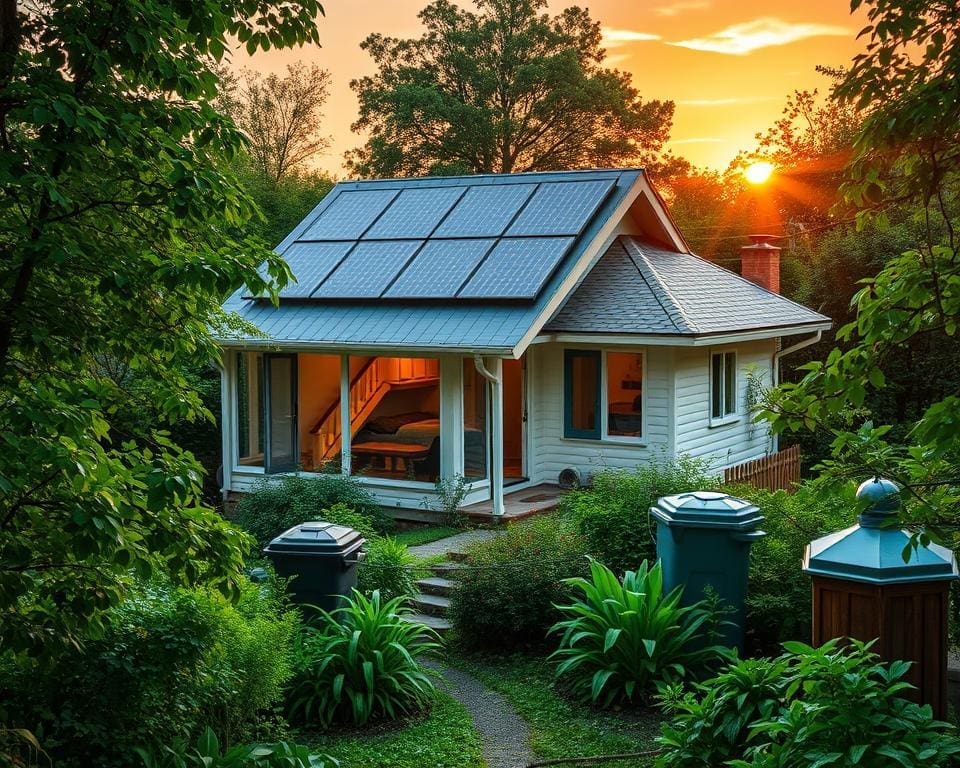In an era where home energy efficiency is not just a choice but a necessity, discovering practical and effective solutions has never been more crucial. Many households in the UK can implement simple home energy savings tips that work, leading to significant reductions in energy consumption. Embracing these energy-saving tips not only brings financial relief but also supports our environment. By making informed choices and focusing on affordable improvements, families can foster a sustainable lifestyle. This article will guide you through essential strategies to enhance energy efficiency in your home and inspire positive change.
Understanding Home Energy Efficiency
Home energy efficiency represents a critical aspect of modern living, striving to minimise energy waste while ensuring a comfortable home environment. Implementing advanced technologies and practices can significantly help reduce energy consumption and provide a sustainable lifestyle.
What is Home Energy Efficiency?
Home energy efficiency refers to the capacity of a home to use less energy for the same level of comfort and service. Key components include insulation, which prevents heat loss; energy-efficient appliances that utilise less electricity; and smart home technologies that facilitate optimal energy use. A systematic approach to enhancing these areas results in a noticeable reduction in energy consumption, promoting a calmer and eco-friendly living experience. Understanding these principles empowers homeowners to make informed decisions that contribute to their long-term savings.
Benefits of Improving Energy Efficiency
Improving home energy efficiency comes with a myriad of advantages. Notably, homeowners experience cost savings on energy bills, which can be quite substantial over time. Enhanced energy efficiency can also increase property value, as homes equipped with modern energy solutions are often more attractive to potential buyers. Furthermore, by choosing to invest in energy-efficient upgrades, households can significantly reduce their carbon footprints, promoting eco-friendly living. Statistical data has shown that effective energy-efficient improvements can lower operational costs, while insights from various studies highlight the broader impacts on personal finances and environmental health.

Simple Home Energy Savings Tips That Work
Homeowners can implement various low-cost improvements that offer immediate savings. Making simple adjustments not only reduces energy consumption but often leads to financial benefits as well. Consider the following strategies:
Low-Cost Improvements for Immediate Savings
Simple changes around the house can yield significant benefits. Focus on these energy-saving tips:
- Seal drafts around windows and doors to prevent heat loss.
- Use energy-efficient light bulbs which consume less power and last longer.
- Adjust thermostat settings by lowering temperatures during the night or when away from home.
Such low-cost improvements act as effective, cost-effective energy solutions that can improve overall household efficiency.
Investing in Energy-Efficient Appliances
Upgrading to energy-efficient appliances presents an excellent long-term energy-saving strategy. Look for units bearing the Energy Star label, as they are designed to reduce energy consumption without sacrificing performance. Notable categories include:
- Refrigerators
- Washing machines
- Dishwashers
By opting for these appliances, homeowners can enjoy lower utility costs over time, representing a wise investment in cost-effective energy solutions.
Adopting Energy-Saving Habits
Creating a culture of energy conservation involves adopting specific energy-saving habits. Efforts should include:
- Turning off lights when not in use.
- Unplugging devices after use.
- Utilising natural light whenever possible.
These routine behaviour changes demonstrate how small actions can have a substantial impact, showing the importance of sustainable living practices in our daily lives.
Embracing Sustainable Living Practices
In today’s world, embracing sustainable living is more crucial than ever. Small actions, such as recycling, composting, and adopting eco-friendly living habits, play a significant role in minimising our environmental impact. Each item we recycle or compost contributes to a more sustainable ecosystem, reducing landfill waste and promoting healthier soil. By choosing to recycle materials such as paper, glass, and plastics, we participate in a closed-loop system that conserves resources and makes a tangible difference in our communities.
Furthermore, sustainable purchasing behaviours are vital in our quest for eco-friendly living. By opting for products with minimal packaging or supporting local businesses that prioritise sustainable practices, we not only reduce our carbon footprint but also inspire others to do the same. Brands like Ecover and Method have demonstrated that accessible, environmentally friendly products can be both effective and desirable, encouraging consumers to make conscious choices when shopping.
Incorporating these practices into daily life may seem overwhelming, but individuals can start gradually, integrating eco-friendly habits that resonate personally. Whether it’s using reusable bags, reducing single-use plastics, or planting a small vegetable garden, each action serves as a step toward a more sustainable lifestyle. Collectively, these small changes can lead to significant improvements in the health of our planet, showcasing that every effort matters in the global movement towards sustainability.








